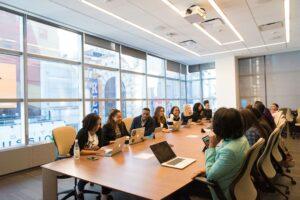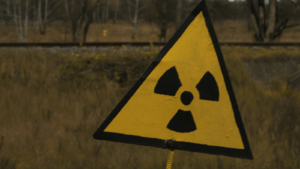
At this KFAS-EUI roundtable, experts come together to share insights on critical issues and the challenges facing both Korea and Europe’s democratic systems.
The very foundations of liberal democracy and the people’s belief in its values are being challenged across the world. Against this backdrop, KFAS and EUI will create a platform to bring together a diverse group of scholars and experts from various academic backgrounds. This closed roundtable aims to derive shared understanding and solutions to common challenges faced by Korea and Europe in issues such as economic inequality, demographic change, populism and migration.
Sub-topics
- Tackling economic inequality
- Consequences of aging society and its impact on democracy
- Populism: is it necessarily bad for democracy?
- Migration policy, etc.

Join this session which is part of the 2024 Digital Rights and Inclusion Forum held in Ghana
Fostering rights and inclusion in the digital age depends upon a shared vision of the internet as open, free, global, interoperable, reliable, affordable, trustworthy and secure. The importance of open Internet and human-centred digital transition as drivers of development have been acknowledged by states and stakeholders all over the world, including in the United Nations Sustainable Development Goals (SDGs), the African Union’s Agenda 2063, and the Declaration for the Future of the Internet (DFI). However, this vision is challenged by competing ideas of closed technical, economic, and social approaches to internet governance that threaten the global and open nature of the internet. These approaches have implications for social development, international security, economic growth, and human rights, including through practices like internet shutdowns, mass-surveillance practices, and the targeting of activists and civil society.
This session aims to facilitate a discussion on a shared vision for the future of the internet in Africa, first by looking at practical case studies of the open internet from four different African countries: 1) The Kenya model of open multistakeholder Internet Governance; 2) The Burundi model of Digital Skills development; 3) the Senegal model of open Internet technical infrastructure; and 4) the South Africa model of open internet-enabling policy and regulation.
Drawing lessons from different parts of the multistakeholder community, the session will also consider what practical steps stakeholders can take to strengthen the open internet and support the implementation of the principles outlined in the DFI.
Project funded by the European Union under the service contract no. NDICI/2023/447-807

Join Antoaneta Dimitrova as she discusses the challenges with Western Balkans EU candidacy, and the potential impact of Ukraine’s membership application amidst the war.
The European Union’s enlargement policy has been in deadlock for the last decade. Both aspects of the policy of enlargement, as a process of negotiations towards accession and as a process of reform and preparation of future member states, have been unsuccessful with respect to the long standing candidates in the Western Balkans. The war against Ukraine and Ukraine’s application for membership may represent an opening for fundamental change in the EU’s enlargement policy, a critical juncture. This paper discusses the conditions and mechanisms under which enlargement policy can re-orient towards a new path, utilising the logics of institutionalist theories. Under conditions of unanimity decision making, the deadlock on enlargement may be resolved when preferences of the member states change or when rhetorical action increases the costs of a veto on enlargement.
Examining two years of decision making after the start of the war, the paper argues that the enlargement policy is on a new path, yet existing constraints have not been entirely removed. The prospect of enlargement of the European Union has always opened the debate between widening and deepening, between adding new members and reform of existing institutions and policies. This is especially the case when prospective new members have the potential to affect and unbalance the policies and distributive bargains inside the EU. With respect to the CAP and the budget, the costs of future reform of the EU continue to be high for member states and therefore, next to war, instability and credibility of reforms in candidate states, the key issue regarding accession may be whether debates on reform can find low-cost solutions.

Join Michael C. Huang as he uncovers the balance between economic growth and ocean conservation for a resilient global economy
The Earth’s vast oceans, covering over 70% of its surface, are a critical natural resource alongside soils and forests, forming the foundation of global natural capital. Within this aquatic realm, essential ecosystem goods and services sustain life and underpin human well-being globally. Developing the ocean economy in harmony with people, the planet, and prosperity is paramount for establishing sustainability. The high-level panel for a sustainable ocean economy emphasises numerous unquantified impacts on environmental, social, and health benefits, demanding attention from ocean-related stakeholders, as well as the measures confronting climate change. Present barriers to financing sustainable ocean ventures stem from market dynamics, financial risks, and knowledge gaps. Overcoming these challenges is crucial for G7 nations to facilitate a sustainable ocean economy via a holistic approach from the level of community-based to top-level policymaking. Strategic opportunities include establishing stable regulatory environments, fortifying knowledge and capacity, redirecting public investment, implementing sustainable investment principles, revolutionising insurance approaches, deploying investment tools, and fostering public-private partnerships. The policy brief would provide key pillars and cases to advocate collaboration among think tanks in G7 member countries to consolidate partnerships, creating a conducive environment for sustainable ocean financing, and steering towards a resilient global ocean economy.

This workshop explores the politics of nuclear sharing in Europe, examining the pressures from public opinion, political parties and civil society, and the role of NATO allies in the context of European security.
Nuclear weapons are a crucial element of European security. For most European countries, nuclear deterrence is provided by the NATO nuclear umbrella, which is intended to protect European countries against external adversaries. As part of this umbrella, the United States stations nuclear weapons in five European countries as a part of the so-called ‘nuclear sharing’.
However, in recent years, nuclear sharing has been heavily contested in four of the countries where these weapons are believed to be stationed today. Whether in the public opinion or parliamentary debates, pro-disarmament voices have been very vocal creating significant pressure on governments, and indirectly on the alliance. For instance, ahead of the German elections in 2021, renewing infrastructure for supporting nuclear sharing was a major point of contention.
At the same time, NATO allies support nuclear sharing. The 2020 NATO Reflection Group recalled that “nuclear sharing arrangements play a vital role in the interconnection of the Alliance and should remain one of the main components of security guarantees and the indivisibility of security of the whole Euro-Atlantic area . The 2022 NATO Strategic Concept officially underlines the importance of this arrangement.
This workshop will study the politics surrounding debates on nuclear sharing in Europe, focusing on the role of public opinion, parties and civil society, and looking at the patterns of contestation in Belgium, Germany, Italy, the Netherlands, and Turkey.
The workshop is by invitation only.
